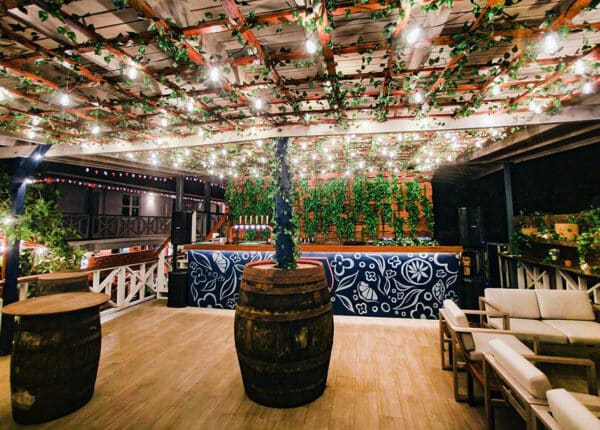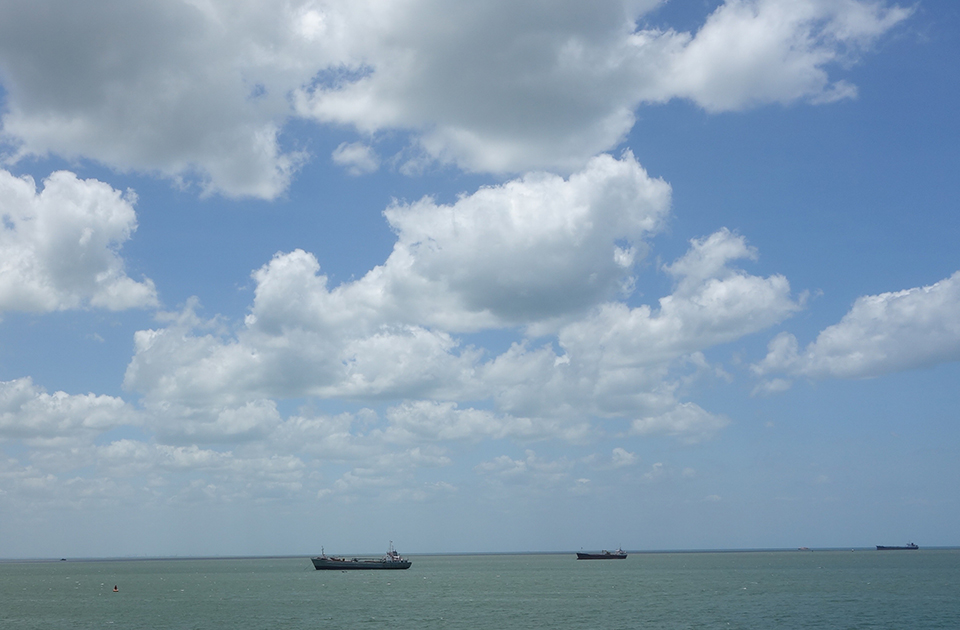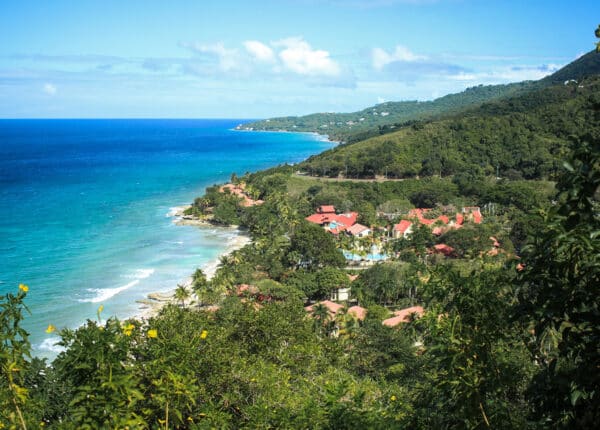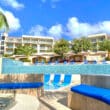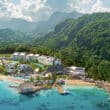Exploring Marine Pollution and the Caribbean Maritime Transport Industry
By George Nicholson and Rachael Robinson
Op-Ed Contributors
Pollution of the world’s oceans is globally recognized as one of our highest environmental concerns. The oceans are regarded as the transportation highways for shipping, tourism and commerce, and with this abundance of ships, there is a significant amount of ship-generated waste that needs disposal. International conventions guide both states and masters of vessels on handling ship generated wastes and, depending on the nature of the waste, these regulations determine whether it may be discharged into the ocean or disposed of on land once the ships come into port. Given the scope and intensity of shipping in the Greater Caribbean, as well as the sensitive nature the Caribbean Sea itself, ship-generated waste presents a significant threat to regions’ marine ecosystems.
In light of this sensitivity and given that the region serves as a major hub for the global shipping industry, the capacity of ports or states to handle and dispose of ship-generated waste itself is a complex issue.
It is well recognised that marine pollution, including oil, chemicals, garbage, sewage, and food waste, which are all being dumped into the ocean, negatively affects industries related to the ocean such as fishing and tourism. In light of this recognition the international community developed the International Convention for the Prevention of Pollution from Ships, otherwise known as the MARPOL Convention, as the principal international treaty governing ship-generated waste.
The Convention, written in 1973 and modified in 1978 focuses on the regulation of ship-generated waste.
Under the provisions of MARPOL, waste is categorized into six annexes, allowing restrictions to be placed on groups of materials rather than on specific substances, and further defines separate requirements for the disposal of each. Annex I and II which cover the prevention of pollution by oil, and noxious liquids carried in bulk respectively, are subject to compulsory ratification by all parties while Annexes III to VI, which introduces requirements to control pollution of the sea by noxious substances and sewage from ships, are optional and must be ratified separately. Of all the annexes, oil (Annex I) and garbage (Annex V) are the most common and make up the majority of waste tonnage. Annex V which focuses on Prevention of Pollution by Garbage from Ships sets restrictions on the handling of garbage, including all food, domestic, and operational waste and completely prohibits the dumping of plastics at sea.
Due to its heavy maritime traffic, sensitive and fragile marine ecosystem, and the nature of the currents through the region, the Caribbean Sea was designated a Special Area with restrictions under MARPOL Annex V in 2011. This is of key importance to the region as special areas are provided with a higher level of protection than other areas, and strict rules apply for the disposal of garbage from ships. Within the Wider Caribbean Region, vessels operating are prohibited from discharging any garbage, with the exception of food waste which may be discharged subject to certain conditions, if the vessel is at least 12 nautical miles from the nearest land. Implementation of this special area status however is not without its own challenges.
The designation recognizes the ecological sensitivity of the region, but puts additional strain on the region’s port waste collection infrastructure. This is especially problematic in the context of the region’s Small Island Developing States (SIDS), which rely heavily on ships coming into their ports, but may lack the means to dispose of the additional waste they bring. Cruise ships, for instance, are critical to the economies of many SIDS, but they also produce significantly more waste than container ships. Although vessel traffic in the region is one of the primary contributors to the tourist-driven economy, limited financial resources curtail the ability of small states to construct appropriate facilities.
Given that ships must now offload all of their waste in ports, since the volume that was once dumped into the sea must now be processed at ports, there is the risk that region’s ports may become overburdened as they lack the infrastructure or reception facilities necessary to handle this increase. Whilst the majority of ports in the region have reported to have adequate port reception facilities, high costs of disposal, and other factors may lead some mariners to illegally discharge of their ship’s waste in the Caribbean’s waters.
With an average of five million barrels of crude oil being transported daily throughout the Wider Caribbean Region, together with an annual total of 70 million tons passing through the Panama Canal, it is estimated that approximately 250 major and minor oil spills will occur each year in the Caribbean Sea and the Gulf of Mexico.
However, studies show that of the sixty-plus Caribbean ports that handle oil and oil derivatives, oil/slop or ballast reception facilities are lacking. The International Maritime Organization (IMO) Global Integrated Shipping Information System further reveals a great need for the availability of data regarding port reception facilities (discharge restrictions, charges, availability of facilities, etc.), particularly in the Small Island Developing States (IMO, 2016). Port State Control inspectors in the territories are responsible for determining if vessels are adhering to international agreements, and have committed to inspecting a minimum of 15% of international ships calling at their ports, but given the vastness of the Caribbean Sea, and the lack of capacity of some member states, there is a significant probability that illegal dumping may go undetected.
Pollution already affects the marine environment and will continue to do so in the Special Area unless territories are able to provide ports with inexpensive and efficient waste disposal systems, either on the port itself or through offsite facilities. Unless disposal is desirable from the mariners’ point of view, pollution will continue in the face of such challenges; consequently compliance with the provisions of MARPOL may not be universal.
In spite of these challenges, through effective enforcement, Caribbean countries have a significant opportunity to improve the region’s marine ecological footprint. Ideally, there must be either an improvement to port infrastructure or other means of improving waste management in the Caribbean on a regional basis and given the difficulties in enforcement, any solution proposed must be both convenient and cost-effective to incentivise compliance.
While there have been improvements, the enactment of the relevant instruments into national legislation to further support the international regulatory framework would also assist the region in meeting its obligations. A successful solution will allow shipping and commerce to continue with minimal hindrance but also result in a significant reduction in the area’s marine pollution.
George Nicholson is the Director of Transport and Disaster Risk Reduction and Rachael Robinson is the Transport and Disaster Risk Reduction Research Assistant of the Association of Caribbean States. Any comments or feedback should be submitted to feedback@acs-aec.org
